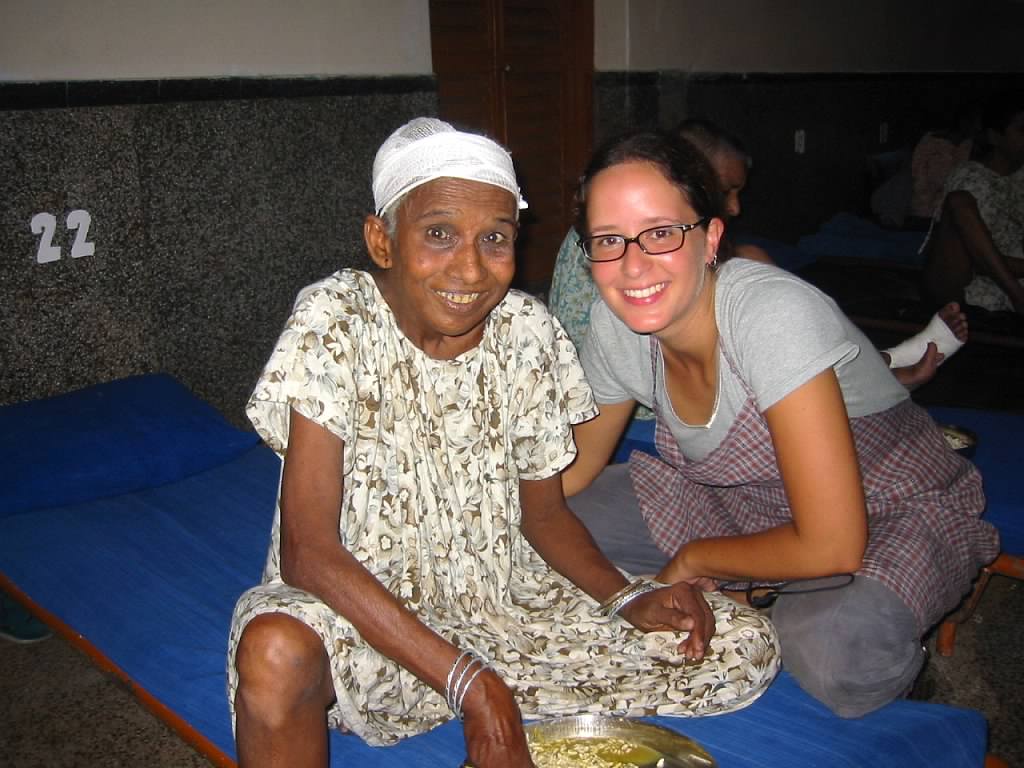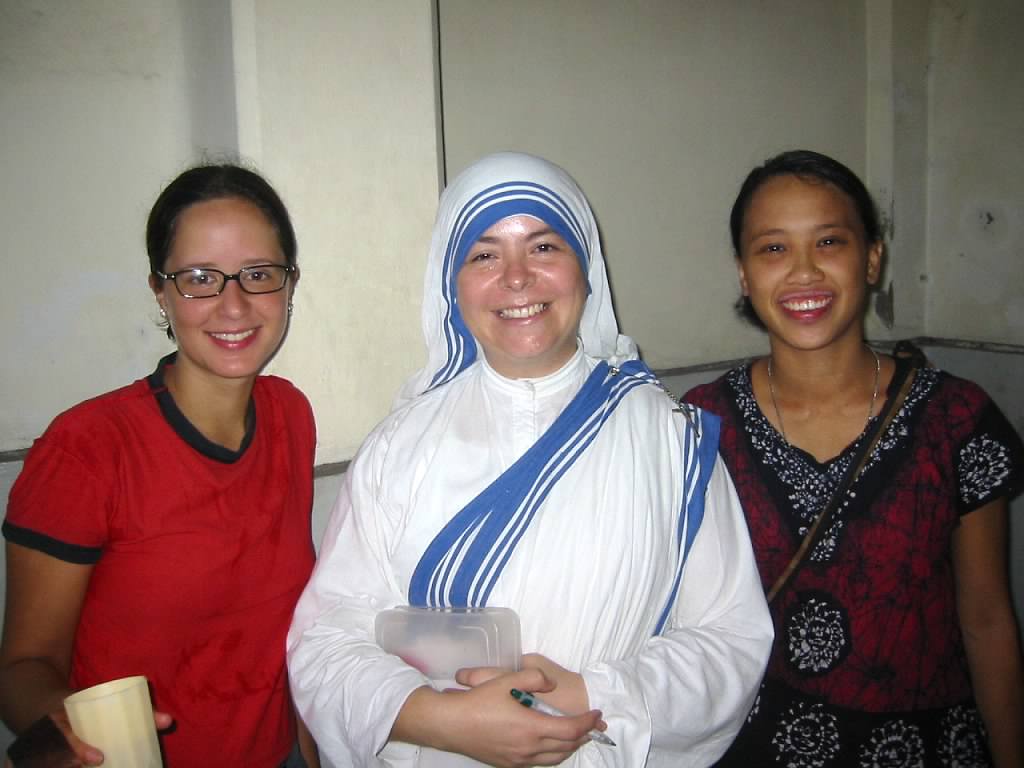- Home
- Our Community
-
Offices & Ministries
- Administrative Offices (A-N)
-
Administrative Offices (O-Z)
- Planning, Properties & Housing
- Public Relations & Communications
- Research
-
Spiritual Affairs
- Home
- Churches and Ecclesial Communities with valid Baptism
- Registration Forms for Baptism, First Holy Communion, Confirmation, and RCIA
- Marriage Preparation
- Celebration of Holy Mass Outside of a Sacred Space Protocol
- Exorcism Protocol
- Healing Service Protocol
- Visiting Clergy-Laity Protocol
- Selected Pastoral Notes on Sacraments and Sacramentals
- Faculties for Clergy
- Temporal Affairs
- Western Bishops Office
- Volunteer Screening
- Pastoral Ministries
- Social Justice & Outreach
- Our Faith
- Outreach
- Contact Us
- Search

Love: The Greatest Gift
By Jacqueline Nivet

My friend Tess and I travelled to Kolkata, India in 2003 to volunteer for one month with the Missionaries of Charity. We were about to start post-graduate degrees in Development Studies and felt we should witness true poverty firsthand as the best way to learn how people bring themselves out of poverty and how others can help.
Each morning we walked to the Mother House, the headquarters of Mother Teresa's charitable works, at about 5:45 a.m. In these early hours, the streets were lined with men bathing themselves at public waterspouts. We passed a garbage heap where children were scrounging for breakfast, sidewalks with rows of people sleeping on the ground and a man on a bike with an impossible number of live chickens hanging upside down on the back.
At the Mother House, we began each day with Mass at 6 a.m. – an hour of prayer, reflection and song before facing difficult situations in an intense day.
In the mornings, I was sent to Prem Dan, a huge complex for ill and destitute men and women. Many suffered from mental illness, disability and trauma, had been abused and abandoned. First, we helped with laundry, stomping with our feet over soiled bed sheets and nightgowns in huge vats filled with soapy water. Next we offered massages, picked lice from hair and cut fingernails and toenails. Finally we fed the clients lunch, some of them unable to move their arms to feed themselves. They were so appreciative of any little act of kindness, calling the volunteers over to them with "auntie, auntie!"
While serving lunch, I noticed one woman had soiled herself. She had no feet or hands, just stumps wrapped in blood-soaked bandages. She was clearly mentally challenged, totally unaware of what was going on around her. I cleaned her up as best I could, and then carried her over to the bathroom to wash her down. She was frighteningly easy to lift as she was just skin and bones. She was crying in pain from being moved, and before I knew it, I was struck by the rawness of the experience. I felt so helpless to ease her pain or treat her madness, able only to clean up the superficial mess. I felt sick to my stomach. All I wanted to do was go back to my hostel and hide away, which brought a wave of guilt. I realized I could get up and walk away at any time, but this was her life, her daily reality. Why was she born into this and I into such a privileged life in Canada? The injustice, and my inability to change it, or even to stomach it, was more than I could handle. I broke down into tears while holding this woman. And then the most amazing thing happened: the poor women in the room, rejected by their own families, were hugging me and comforting me and telling me they love me! This showering of love completely shocked me, because I believed these women and girls did love me, and I had known them only a few days. I was doing so little and it meant so much to them.
We also volunteered at Kalighat, the home for the destitute and dying. One man passed away on my first day there. The sisters crowded around his cot singing hymns and a priest was called to administer last rights. They took his body to the back room to prepare it for cremation. It was so moving to see the sisters and the volunteers love this unknown, homeless beggar as if he were part of their family.
The people who died in this home were fortunate to spend their last days feeling loved. It was the greatest gift we could offer them. Some sisters and volunteers were nurses, dressing wounds as best they could with whatever material they had. The rest of us could only be with the people, hold them while they cried in pain, massaged their torn and battered bodies, feed and bathe them. I thought I would find it hard to do this, but it seems so natural to want to hold someone's hand when they are in pain. That little act of kindness brought so much appreciation. It was amazing when we tried to communicate. I spoke English and they spoke Bengali, but I had some great conversations.
When I was in these homes, I felt like I was cheating. It's not that hard to love people in need. But then I would leave and see the helpless on the street, being stepped on and spat on, with no one to bother with them. I realized what a great gift of love and sacrifice it is for these sisters to have given their lives to care for the abandoned.
I have gained much more from this experience than the sick and dying women I briefly cared for. I had an idea of what physical poverty looked like before my experience in India, but now I know what true poverty, "poverty of loneliness and spirituality" as Mother Teresa called it, can do to a person's soul. This cannot be fixed by development programs or humanitarian assistance alone. The Missionaries of Charity have taught me that the greatest gift we can give is love.


